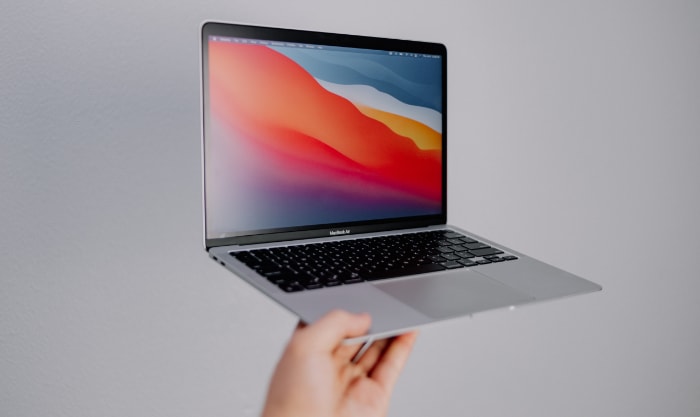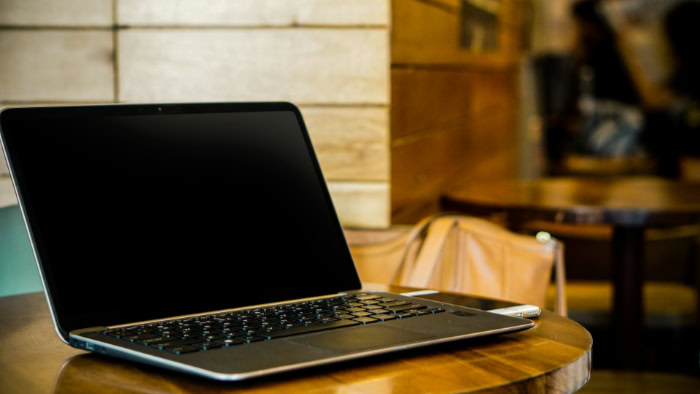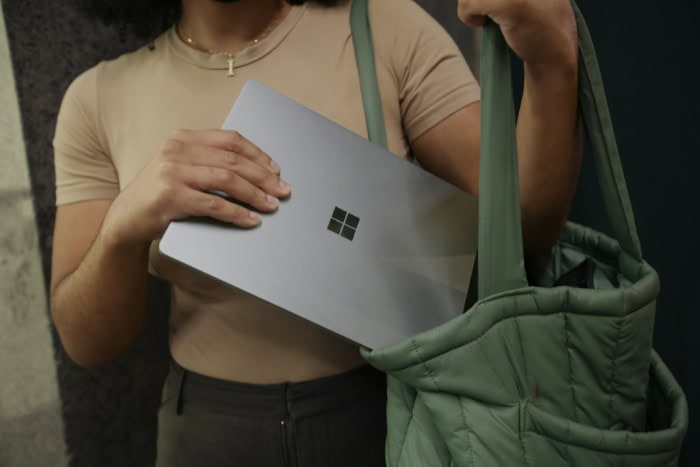Is a 13-Inch Laptop Too Small? The Pros and Cons

Flying through airports, hopping between classes, or settling into a bustling coffee shop, many of us find ourselves weighing the benefits of a compact laptop against what we can actually get done on a smaller screen. Thirteen-inch laptops have surged in popularity with students, remote workers, and anyone who values mobility, but not everyone is convinced that less space equals more freedom.
Screen real estate can feel cramped during multitasking, and even the best compact keyboard may challenge your fingers during long work sessions. Does portability justify sacrificing comfort and multitasking power, or are you giving up more than you gain?
Portability Benefits
Compact laptops make moving between workspaces far less of a hassle. With remote work and blended learning becoming the norm, many people want a device that can follow them wherever their days take them.
A 13-inch laptop often stands out because it offers a lighter, sleeker alternative to bulkier models, making spontaneous productivity sessions or long commutes much more comfortable.
Weight and Mobility
Carrying a 13-inch laptop feels refreshingly effortless compared to lugging around larger machines. Most models in this size bracket weigh around 2.5 pounds or less, so slipping one into a backpack or even a tote bag won’t weigh you down.
In contrast, laptops with 15-inch or 16-inch screens often tip the scales at 4 pounds or more, which can quickly become a burden during a long day filled with meetings or lectures. The lighter build of a compact laptop lets you transition easily between home, office, or campus, and makes a noticeable difference if you’re on your feet or need to switch locations frequently.
Size matters too. A laptop that fits comfortably into smaller bags gives you greater flexibility in how and where you carry it. Morning commutes, biking to class, or squeezing into a crowded subway all feel less stressful with a device you barely notice.
Travel Efficiency
Frequent travelers and café regulars appreciate how a 13-inch laptop slips smoothly into almost any environment. On an airplane, the compact size means it fits neatly on tray tables, so you can keep working or streaming without jostling for space.
In co-working spaces or coffee shops, smaller laptops require less room, letting you set up your mobile office without feeling cramped.
Battery performance is another point of convenience for people on the move. Many 13-inch models are designed with energy efficiency in mind, often lasting up to 18 hours on a single charge.
This extended battery life lets you work through flights, meetings, or lectures without scrambling for a power outlet. Combined with its lightweight frame and easy handling, a compact laptop becomes a reliable travel companion for those who value flexibility throughout their day.
Screen Size Limitations

A compact laptop excels in many situations, but its smaller display presents unique challenges that can affect productivity and comfort. Users often appreciate the ease of transport, but may quickly notice the trade-offs when they try to manage multiple tasks or spend extended hours in front of the screen.
For certain activities, a 13-inch screen simply cannot match the spatial advantages provided by larger devices.
Multitasking Constraints
Handling several windows at once can become a balancing act on a smaller display. Arranging a document side by side with a web browser, a common workflow for students or professionals, often leads to crowded interfaces and reduced visibility.
Tabs and text may appear cramped, forcing users to constantly resize windows or toggle between applications. Over time, this can slow down work and result in minor frustrations that add up.
For those who need more space, using an external monitor can address many of these limitations. Connecting a 13-inch laptop to a larger screen transforms it into a versatile workstation, but this solution removes some of the laptop's go-anywhere appeal.
Relying on extra hardware is simply not practical for everyone, especially for users who want to remain mobile or travel light.
Visual Comfort
Smaller screens tend to make fine details and small text more difficult to read, especially during long work sessions. Users may need to adjust font scaling to avoid straining their eyes, which can lead to less information being visible at once.
Prolonged use without adequate zoom or scaling can contribute to discomfort and fatigue, particularly for those prone to eye strain.
Creative professionals, such as photographers or video editors, may also feel limited by the size and resolution of a 13-inch display. Previewing images, editing timelines, or fine-tuning color correction becomes more challenging when workspace is restricted.
Even with high pixel density, simply having less screen area to arrange toolbars and palettes can impact the overall creative process. As a result, many creators prefer to supplement their compact laptops with external monitors, especially for tasks that demand precise visual detail.
Ergonomics and Input Comfort

Comfort and usability become especially important the longer you spend on your laptop. Compact devices promise portability, but they often present unique ergonomic challenges, especially for those who type for hours or rely on swift trackpad gestures.
The design and feel of the keyboard and trackpad can make a major difference in productivity and overall satisfaction.
Keyboard Usability
Typing on a 13-inch laptop often feels different from working on a larger device with a full-size keyboard. Reduced key spacing can be a minor adjustment or a constant annoyance, depending on your typing style.
Extended typing sessions may lead to more noticeable fatigue in your hands or wrists, particularly if you’re used to the generous spacing and larger palm rests found on bigger models.
Brand differences also play a role in typing comfort. MacBook keyboards are well-known for their snappy feedback and consistent feel, while Dell’s XPS line often features a softer touch.
Some users might find one more comfortable than the other, and this preference can dramatically influence long-term satisfaction. No matter the brand, smaller laptops tend to offer less vertical key travel and reduced space for extended hand placement, which can make marathon writing sessions less enjoyable.
Trackpad Precision
Trackpad experience can make or break the overall ease of navigation, especially if you favor gestures and shortcuts. On most 13-inch laptops, trackpads are necessarily smaller, which translates to a reduced surface area for multi-finger gestures or broad swipes.
Fast navigation remains possible, but you might find your fingers brushing the trackpad’s edges more frequently, and some gestures may feel cramped or imprecise.
Premium models like those from Apple and Dell still manage to deliver responsive, accurate tracking, but the physical limitations of the compact footprint are hard to avoid. For users who prioritize gesture navigation or frequently use advanced touchpad commands, adjusting to a smaller surface can take some getting used to.
The overall experience still tends to be smooth on higher-end models, but the difference compared to their larger counterparts is noticeable, especially during prolonged use or when working with detailed creative tasks.
Performance and Use Case Suitability

Performance is a crucial factor when selecting a laptop, but it only truly matters when paired with your individual workflow and expectations. A 13-inch device can be a perfect sidekick for some users, while others may chafe at its limits.
Versatility is a strong point for smaller laptops, yet there are clear boundaries for the types of tasks where they really shine, and where they start to fall short.
Ideal Scenarios
Students and frequent travelers stand to benefit the most from a 13-inch laptop. For note-taking, research, or writing assignments, performance is rarely bottlenecked by hardware or screen size.
Lightweight design makes it a breeze to carry around campus, fit onto a small desk in a lecture hall, or pull out during layovers and commutes. Battery life is often another highlight, providing enough power to last through long days packed with classes or meetings, often without the anxiety of hunting for an outlet.
For casual browsing, social media, and streaming movies or TV shows, a 13-inch screen usually feels sufficient and even comfortable. Crisp displays and modern audio options can make media consumption enjoyable, while the compact form makes it easy to shift from the couch to the kitchen table or head outside.
For basic productivity apps, web-based work, and reading, small size rarely feels like an obstacle.
Limiting Scenarios
Complex tasks have different needs, and some workflows quickly run up against the physical and technical constraints of a compact laptop. Writing code within an integrated development environment (IDE) on a smaller screen can mean less space for panes, references, or simultaneous file windows, which may slow down productivity compared to working on a larger display.
Gaming and graphic design push the hardware even further, often revealing where a 13-inch device starts to struggle. Even with efficient processors, less internal space leads to quicker thermal buildup, so high-end graphics or intensive games may trigger thermal throttling, limiting overall performance.
Larger files and multi-layer editing in creative apps can also feel cramped and unwieldy as windows overlap and tools get buried. Professionals in graphics, video editing, or gaming usually find themselves craving more screen space, stronger graphics, and better heat management, turning to larger laptops or desktops when necessary.
For light tasks and focused mobility, a 13-inch laptop delivers impressive versatility. For ambitious projects and resource-heavy applications, users are likely to encounter some natural limitations.
13-inch vs. Larger Alternatives

Choosing a laptop size is about balancing personal comfort, workflow requirements, and lifestyle priorities. Both 13-inch models and their larger 15-inch or 16-inch counterparts bring their own distinct benefits and compromises.
Looking at portability, productivity, and price sheds light on which type of device may be best suited for your routine, preferences, and work ambitions.
Portability
A 13-inch laptop truly shines for those who are always on the move. Compact form factors fit easily into nearly any bag or small workspace, making them ideal for travel, commuting, or working in environments where space is limited.
Larger laptops, on the other hand, can feel unwieldy when carrying them from meeting to meeting, or trying to find a spot on a crowded café table. For anyone who values the ability to pack up and go quickly, smaller devices offer a level of flexibility that bigger models struggle to match.
Productivity
Productivity often depends on how much screen real estate you need for your day-to-day tasks. Multitasking on a 13-inch laptop requires careful window management and can involve more switching between applications.
While it is entirely possible with the right settings and shortcuts, working across multiple documents or apps at once feels more natural on a 15-inch or 16-inch display. Larger screens allow for deeper immersion, smoother multitasking, and room to keep reference material, communication, and creative work visible at the same time.
Many professionals in design, data analysis, or software development find a big display makes their workflow more efficient and enjoyable.
Price Range
Cost is often another deciding factor between compact and larger laptops. Many 13-inch models fall into a more approachable price range, typically between $300 and $1,000, making them an attractive option for students and budget-conscious users.
Premium larger laptops, such as 15-inch and 16-inch models, usually carry a higher price tag, often ranging from $750 to $2,700 or more, especially when decked out with advanced graphics, more storage, or extra processing power. While the investment can be worth it for those who demand the most from their devices, those who need a capable machine without breaking the bank might find better value in a well-equipped 13-inch option.
Conclusion
A 13-inch laptop truly shines for those who put a premium on mobility and commute-friendly design. Lightweight construction, easy portability, and impressive battery life make it a smart pick for students, frequent travelers, and anyone who needs technology to keep up with a dynamic routine.
However, users with more demanding workflows, such as coders, creative professionals, or anyone who regularly juggles multiple windows, may find that the compact display and scaled-down keyboard can limit comfort and productivity.
If you spend most of your time on the go or use your laptop mainly for browsing, note-taking, and streaming, prioritizing a smaller device makes sense. On the other hand, anyone seeking a primary workstation for intensive tasks will likely appreciate the multitasking freedom and immersive experience offered by a larger screen.
All things considered, there is no single answer to the “too small?” question. The right choice depends on how you work, what you value in your daily setup, and the tasks you take on most frequently.
Consider your habits, needs, and aspirations; the perfect laptop size is the one that fits seamlessly into your life.


